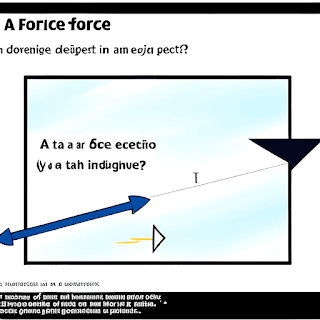Difference Between Torque and Force | Torque vs Force | Answerthings69
The Difference Between Torque and Force
At our company, we pride ourselves on providing clear and concise explanations for complex topics. Today, we delve into the intriguing realms of torque and force. Both terms are frequently encountered in the realm of physics, yet they possess distinct characteristics and applications. By understanding the disparities between torque and force, you can navigate the intricacies of physics with confidence. Let's explore these concepts further.
Defining Torque and Force
Torque is defined as the rotational equivalent of force. It represents the ability of a force to cause an object to rotate about a specific axis. When a force is applied to an object in a way that causes it to rotate, torque comes into play. Imagine a wrench being used to tighten a bolt. The force exerted on the wrench generates torque, enabling the bolt to turn.
On the other hand, force refers to any influence that causes an object to undergo acceleration, change its direction, or deform. Force can be categorized into various types, such as gravitational force, electromagnetic force, and applied force. It is typically measured in newtons (N) and is represented by a vector, indicating both its magnitude and direction.
The Relationship Between Torque and Force
Torque and force share an intimate relationship. While torque is derived from force, they are distinct in their applications and effects on objects. It is important to note that torque is highly dependent on the point of application and the angle at which the force is applied.
When a force is applied to an object in a manner that is parallel to the axis of rotation, it results in no torque. This occurs because the force's line of action passes through the axis of rotation, generating no rotational effect. However, when the force is applied at an angle to the axis of rotation, it gives rise to torque.
Calculating Torque and Force
Torque can be calculated using the formula:
Torque = Force × Distance × sin(θ)
where:
- Torque is the rotational effect (measured in newton-meters, Nm),
- Force is the magnitude of the applied force (measured in newtons, N),
- Distance refers to the perpendicular distance between the axis of rotation and the line of action of the force (measured in meters, m), and
- θ represents the angle between the force vector and the line connecting the axis of rotation to the point of force application (measured in radians, rad).
force can be calculated using Newton's second law of motion:
Force = mass × acceleration
where:
- Force is the magnitude of the force (measured in newtons, N),
- mass refers to the mass of the object (measured in kilograms, kg), and
- acceleration is the rate at which the object's velocity changes over time (measured in meters per second squared, m/s²).
Applications of Torque and Force
- Torque and force find applications in various fields, including physics, engineering, and everyday life.
- In engineering, torque plays a crucial role in the design and operation of machinery and vehicles. It is particularly important in areas such as automotive engineering, where torque is utilized to measure engine performance and determine a vehicle's ability to overcome resistance and accelerate.
- Force is fundamental to many aspects of physics and engineering. It is involved in understanding the behavior of objects under the influence of external influences, such as gravity and electromagnetic fields. Engineers rely on force calculations to design structures, analyze stress distribution, and ensure the safety and stability of buildings, bridges, and other constructions.
Is torque also called force?
No, torque is not called force. Although torque and force are related concepts, they are not interchangeable. Torque is a specific type of force that causes rotation, while force is a broader term that encompasses various influences on objects. It's important to differentiate between the two to accurately understand and describe physical phenomena. concepts in the world of physics and engineering. While torque represents the rotational effect of a force, force itself is a general term encompassing various influences that cause objects to accelerate or deform. By grasping the distinctions between these two concepts, you can enhance your understanding of mechanics and their real-world applications.



.png)

.png)

%20and%20transform()%20in%20Pandas.png)

.png)